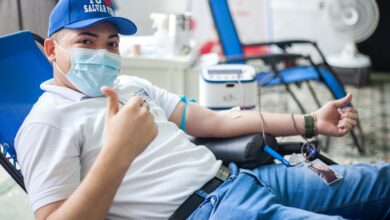What do you know about the functions of the stomach, its diseases and its treatment?

Gastroenteritis
Gastroenteritis is an infection of the digestive system that causes:
- nausea;
- vomiting;
- abdominal cramps;
- diarrhoea.
In the majority of cases, it is short-lived, symptoms occur quickly and usually disappear after 1 to 3 days. It is most often caused by a virus or bacteria that is transmitted mainly by:
- hands ;
- the water ;
- contaminated food: this is called food poisoning.
The ulcer
Ulcer is an inflammation of the stomach wall. The ulcer is linked to the proliferation of a stomach bacterium, Helicobacter pylori i, which invades the layer of mucus which normally protects the stomach from acidity. It thus disrupts the protective mechanism in some people. This layer of mucus disappears then it is the ulcer itself which causes lesions of the internal wall of the stomach.
Gastritis
Gastritis is an inflammation of the stomach lining. It translates to:
- heartburn;
- difficulty digesting.
Generally not serious, gastritis can be caused by:
- the alcohol ;
- medication ;
- Helicobacter pylori.
The hiatal hernia
A hiatal hernia is where the stomach rises partly through a small opening called the esophageal hiatus, located in the diaphragm, the breathing muscle that separates the chest cavity from the abdomen.
Stomach Treatments and Prevention

Prevention of gastroesophageal reflux
Smoking and obesity are major contributors to the onset of gastroesophageal reflux disease. No proven prevention exists, but certain measures can reduce burns:
- watching your diet is a key point;
- Avoiding foods that are too fatty can help, because fat slows the passage of food from the stomach and reflux is greater when the stomach is full.
Prevention of gastroenteritis
Several preventive measures exist to avoid the spread of gastroenteritis. This disease spreads very easily and knowing that 80% of germs are transmitted by the hands 3 , good washing is your main ally against contamination. The World Health Organization or WHO considers that this is the most important hygiene measure to prevent the transmission of these infections.
Prevention of stomach pain
Taking certain medications can cause stomach pain. This is particularly the case for non-steroidal anti-inflammatory drugs or NSAIDs such as aspirin or ibuprofen, widely used against rheumatic diseases.
These substances increase the risk of gastric complications. In some cases, a stomach-protecting drug may be combined with NSAIDs. But this prescription should not however be systematic specifies the Health Insurance 4 in a report of 2009. “This decision rests, for each patient, on his age or the analysis of his risk factors of gastroduodenal complication”. The National Agency for the Safety of Medicines and Health Products (ANSM) 5 advises to “use NSAIDs at the minimum effective dose, for the shortest possible duration”.








